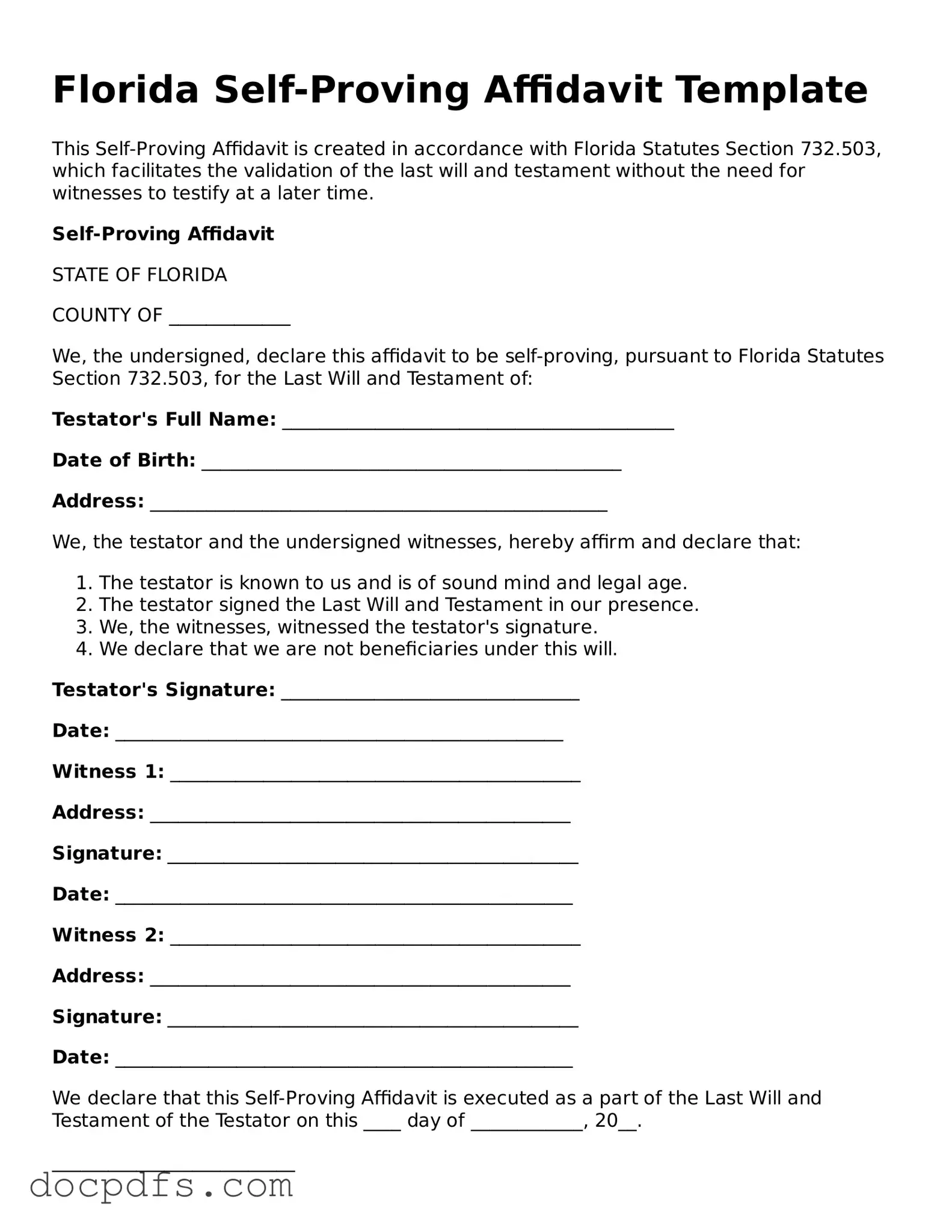What is a Florida Self-Proving Affidavit?
A Florida Self-Proving Affidavit is a legal document that allows a testator's will to be validated without requiring witnesses to testify in court after the testator's death. This affidavit confirms that the will was signed by the testator and witnessed properly, streamlining the probate process.
Why should I use a Self-Proving Affidavit?
Using a Self-Proving Affidavit can simplify the probate process significantly. It provides evidence that the will was executed correctly, which can help prevent disputes among heirs. By including this affidavit, you can save time and reduce costs associated with gathering witness testimony.
How do I create a Self-Proving Affidavit in Florida?
To create a Self-Proving Affidavit, follow these steps:
-
Prepare your will with the required signatures of the testator and witnesses.
-
Include a statement in the affidavit that confirms the testator's identity and the circumstances of signing.
-
Have the testator and witnesses sign the affidavit in the presence of a notary public.
Once completed, the affidavit should be stored with the will for future reference.
Who can act as a witness for the Self-Proving Affidavit?
In Florida, any competent adult can serve as a witness for the Self-Proving Affidavit. However, it's advisable to choose individuals who are not beneficiaries of the will. This helps avoid potential conflicts of interest and challenges to the validity of the will.
Is a Self-Proving Affidavit required for a will to be valid in Florida?
No, a Self-Proving Affidavit is not required for a will to be valid in Florida. However, including one can make the probate process smoother and more efficient. A will can still be valid without this affidavit, but it may require additional steps to prove its authenticity.
Can I revoke a Self-Proving Affidavit?
Yes, a Self-Proving Affidavit can be revoked. If you decide to change your will or the accompanying affidavit, you should create a new will or affidavit that explicitly revokes the previous documents. Make sure to follow the same formalities as the original documents to ensure their validity.
What happens if I don’t include a Self-Proving Affidavit?
If you choose not to include a Self-Proving Affidavit, your will can still be probated. However, the court may require witness testimony to verify the will's authenticity. This can lead to delays and additional costs during the probate process, potentially causing stress for your loved ones.
Where should I keep my Self-Proving Affidavit?
It’s important to store your Self-Proving Affidavit in a safe and accessible location. Consider keeping it with your will in a fireproof safe or with a trusted attorney. Inform your loved ones about its location to ensure they can easily access it when needed.

